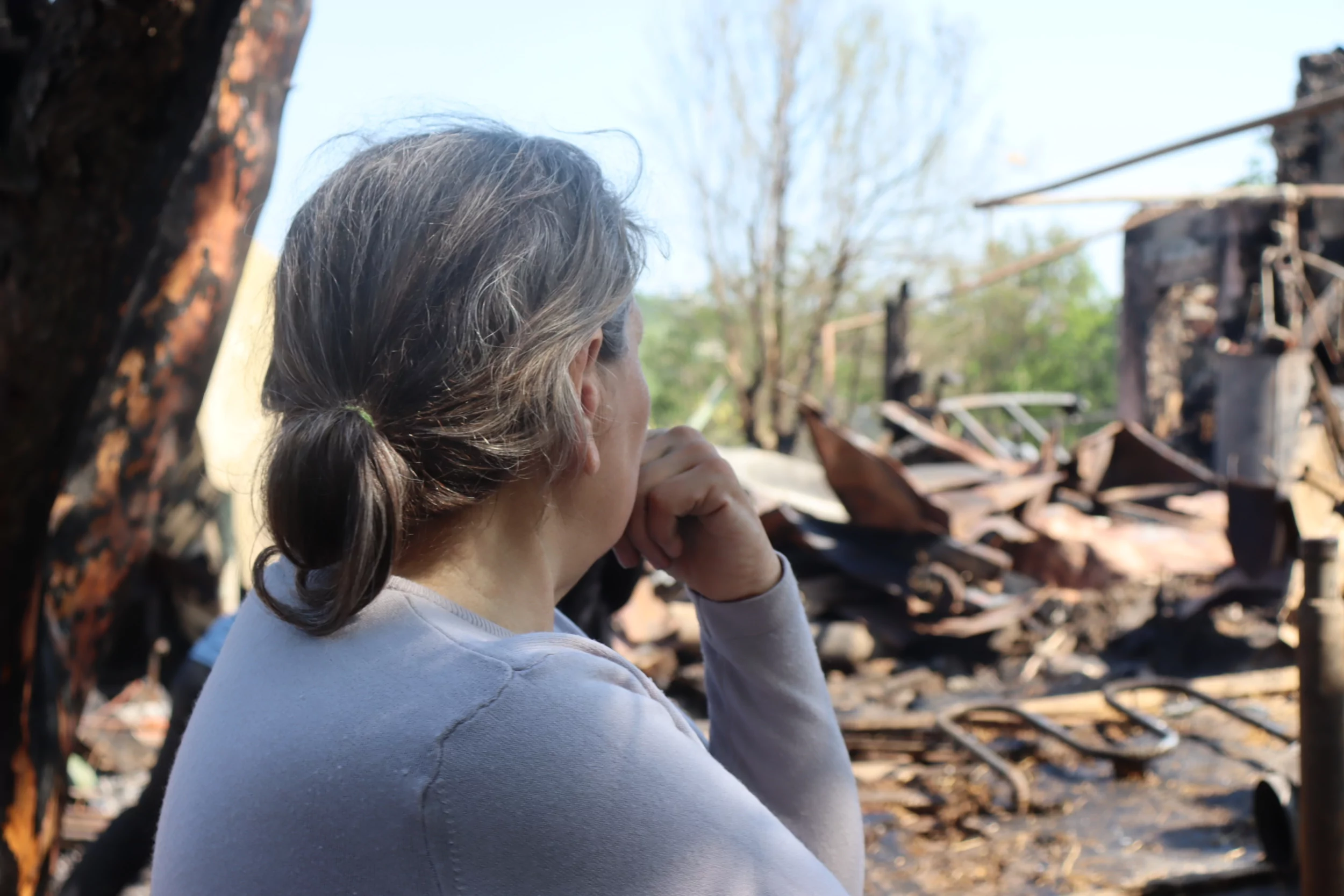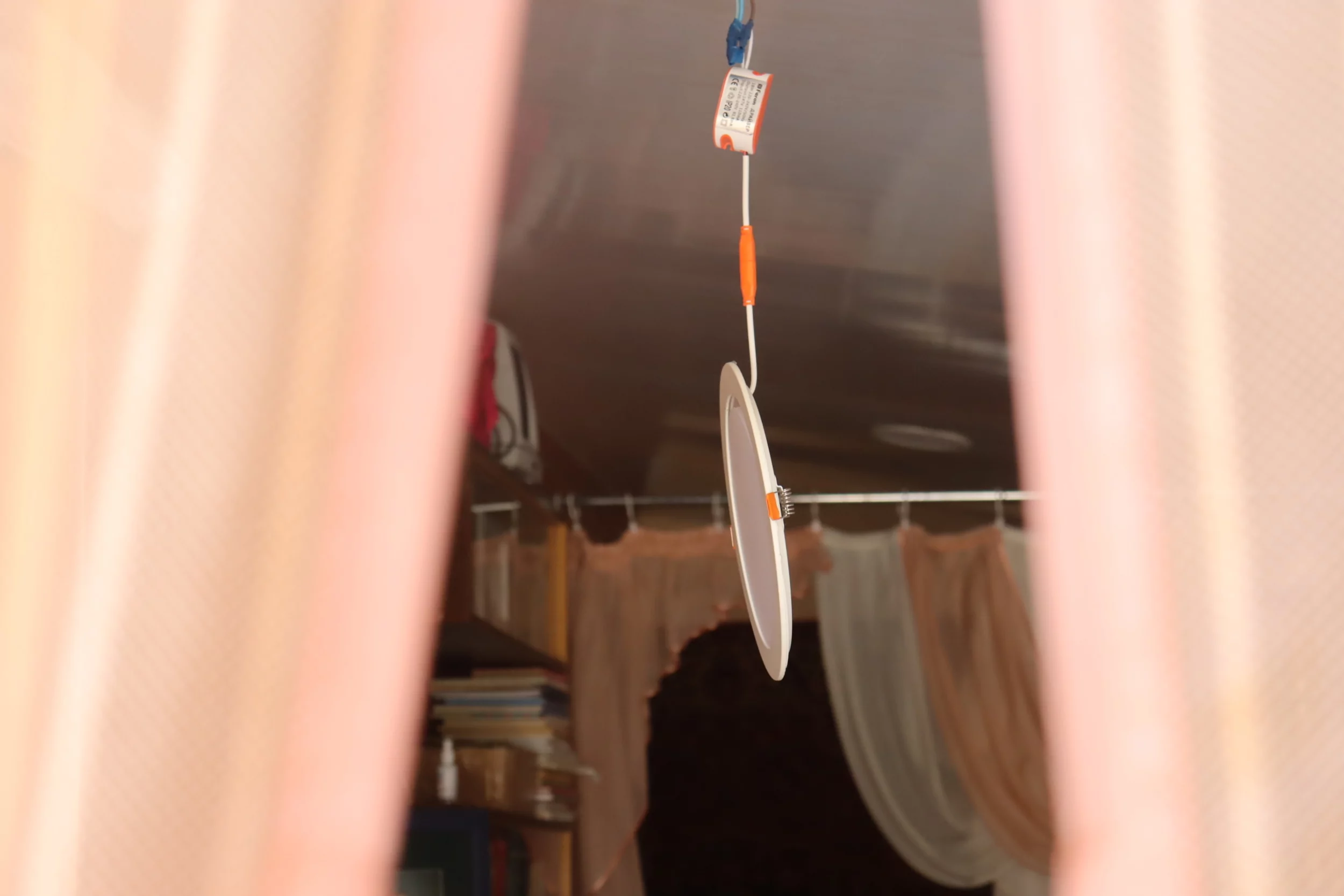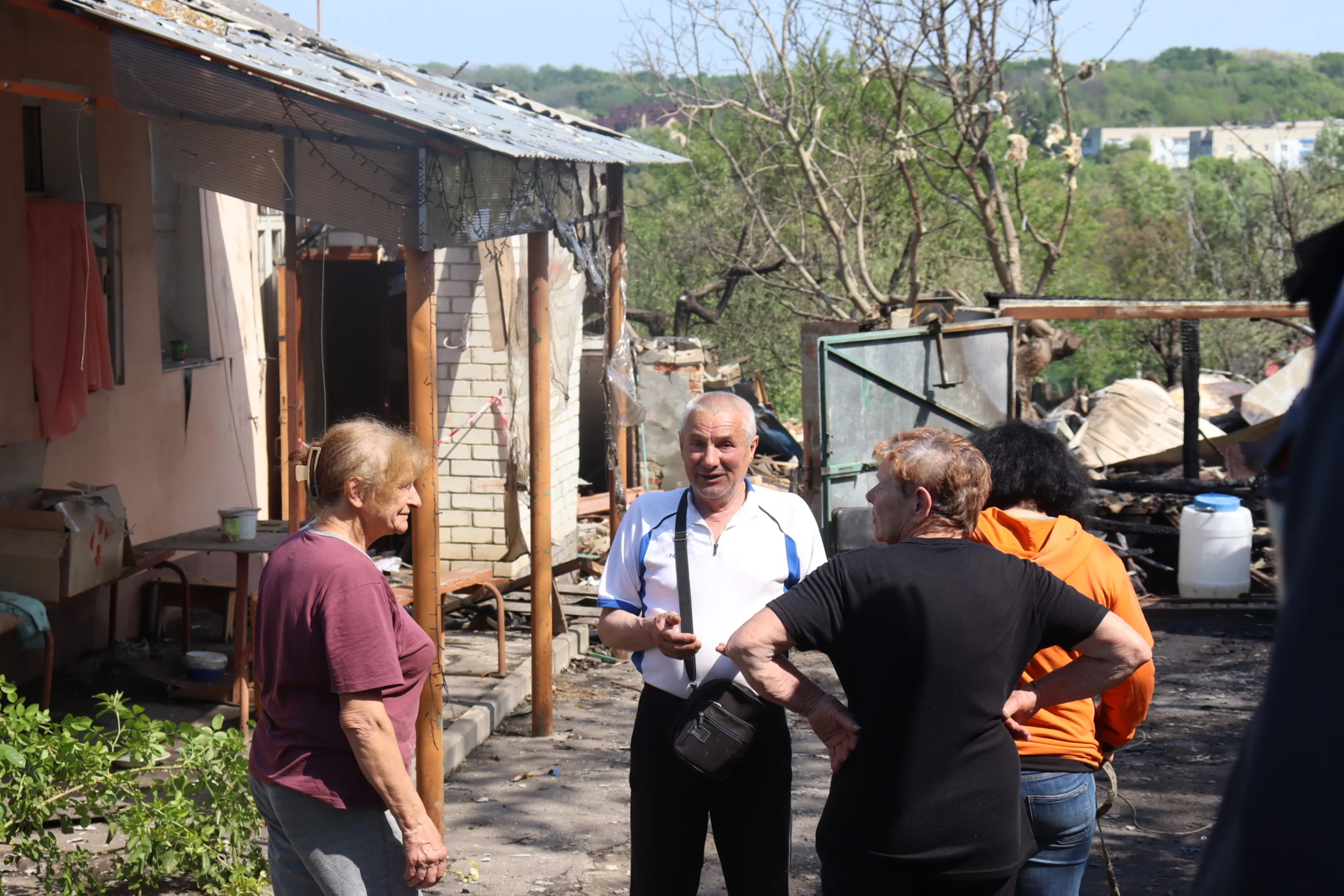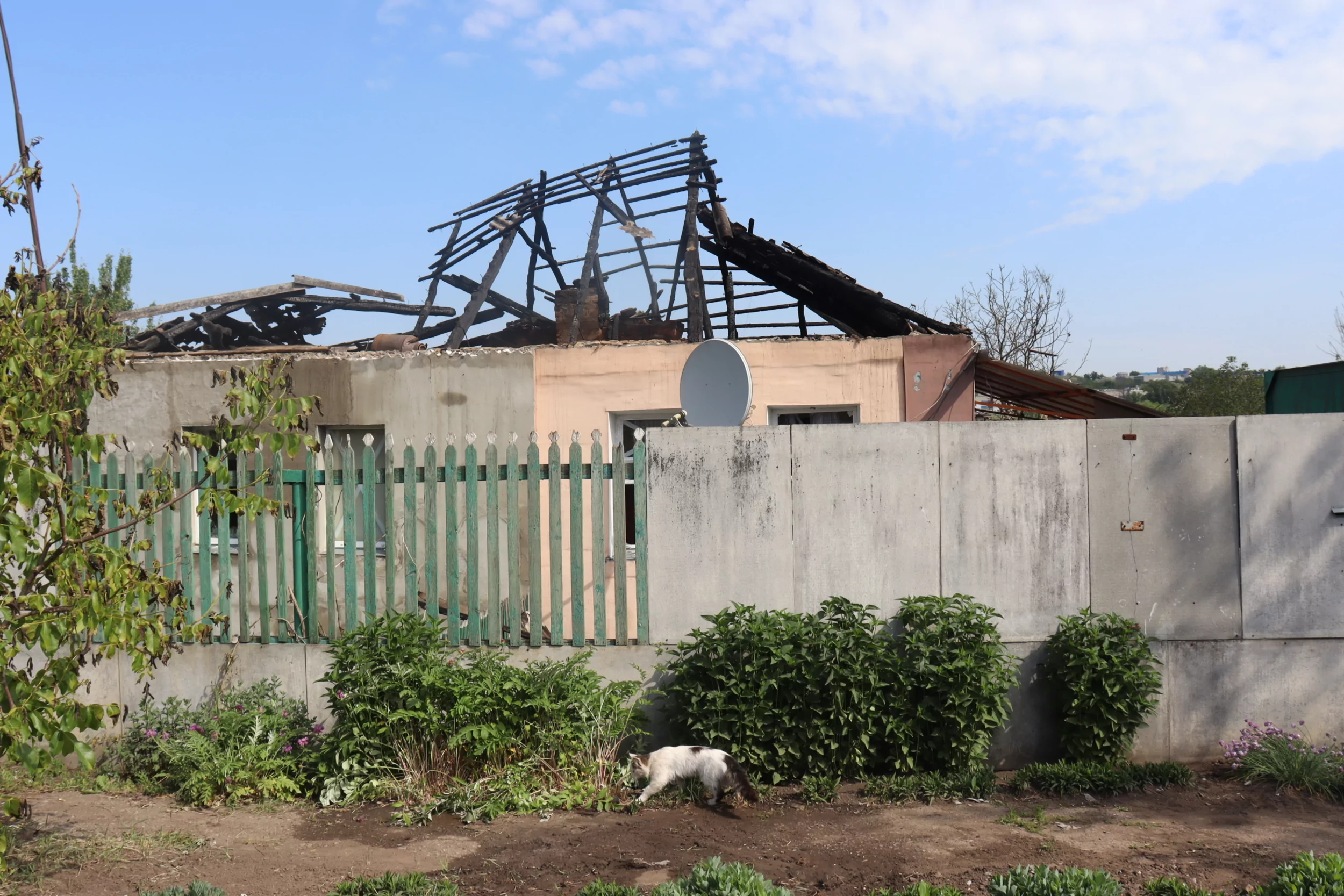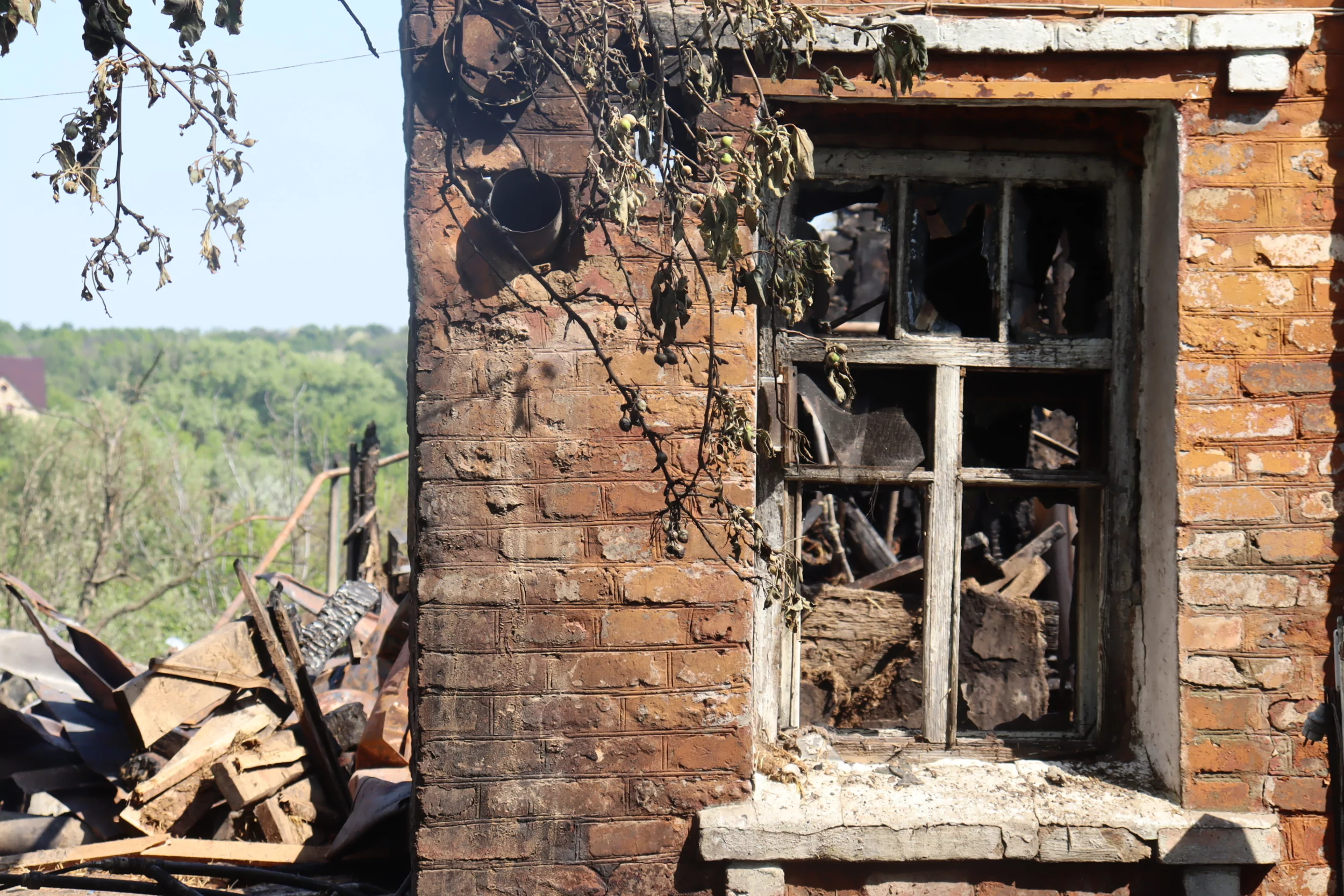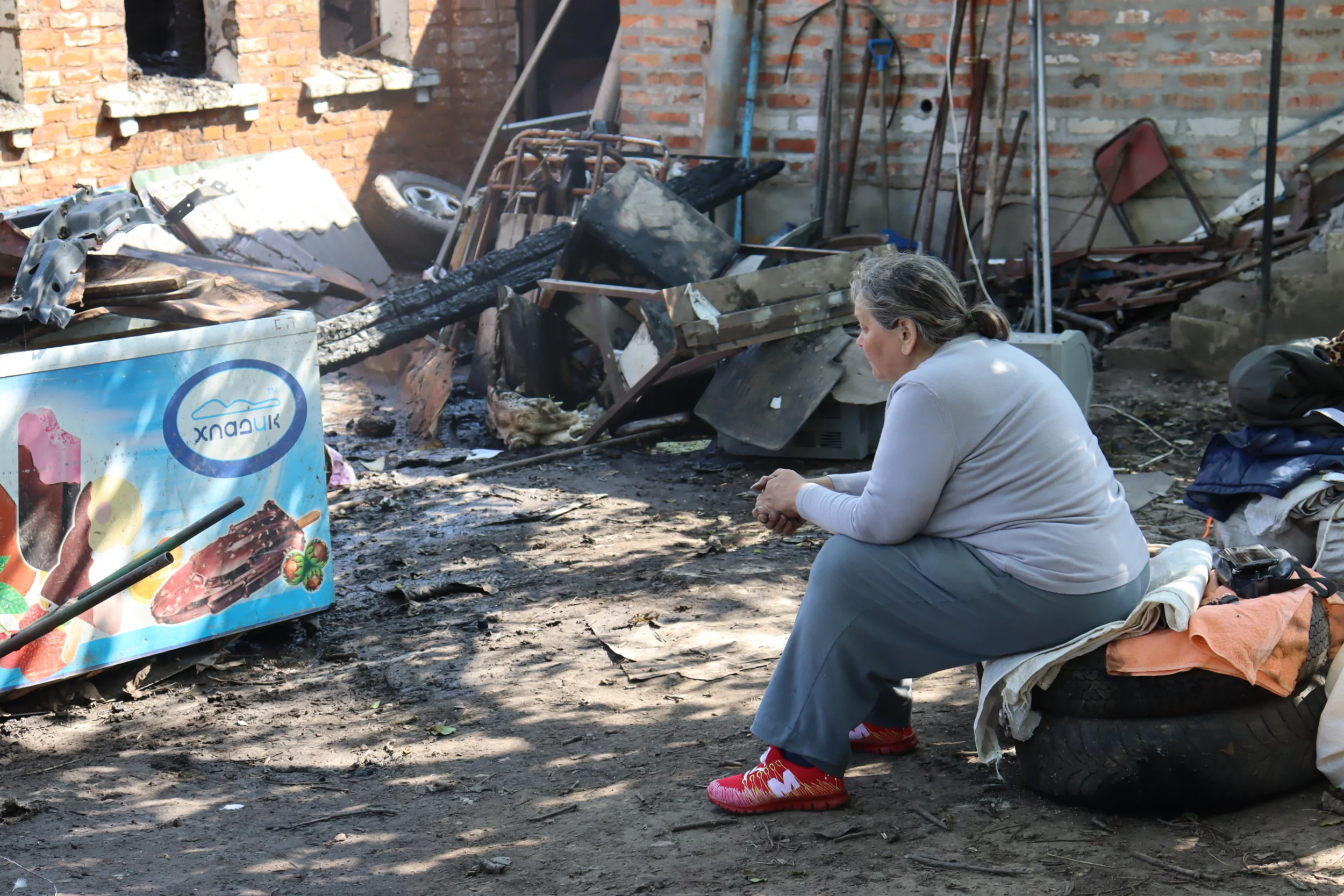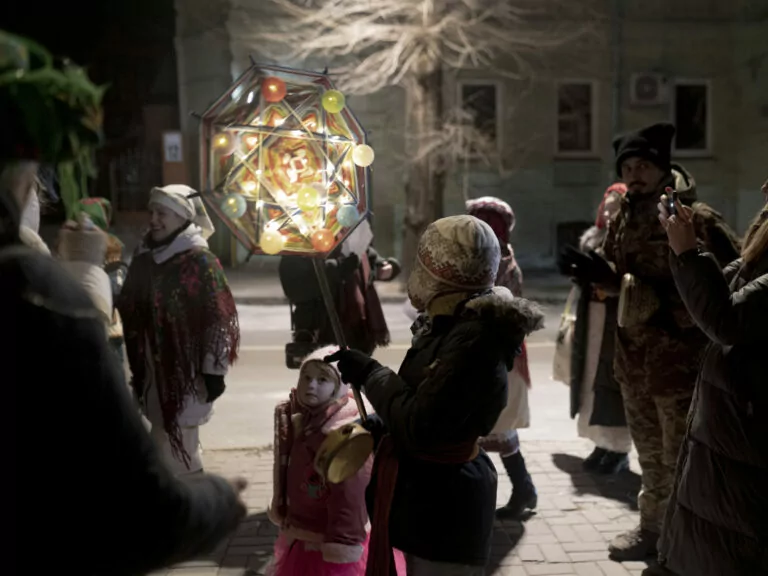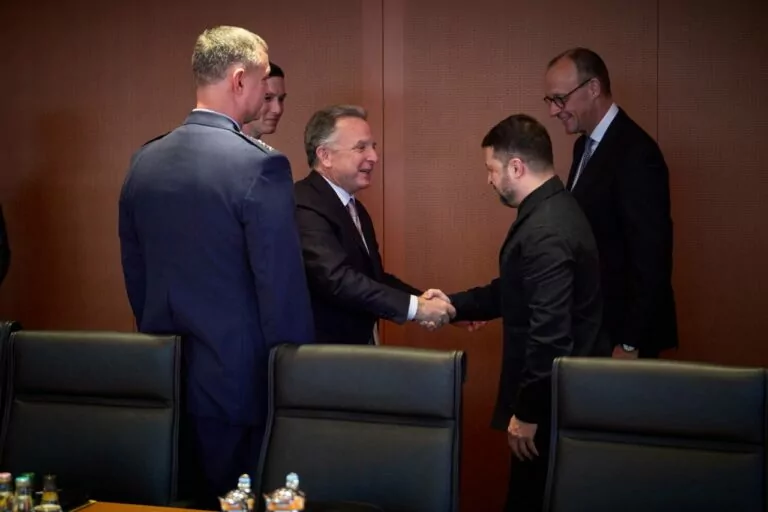UKRAINE, KHARKIV OBLAST, May 21 — Oleksandr, 58, left home to spend the night at his children’s place, but was woken up just a bit after 2:00 a.m.
“My neighbor called, said, “I don’t know about you, but I’m burning.” I jumped into the car and got here.”
Iranian-made Shahed kamikaze drones, a frequent Russian pick out of their arsenal, hit multiple locations that night.
Russia targeted Sarzhyn Yar, a ravine with a mineral water spring in one of Kharkiv’s central districts (a place loved by many Kharkiv residents and their children). The explosive blast from downing a drone blew off windows in one of the city’s three-story office buildings.
Olena Shapoval, a spokesperson for the region’s military administration, told Gwara Media that these drone attacks injured at least five people in Kharkiv.
Here in Kulynychi, a village in Kharkiv suburbs where nearly 3,000 people lived pre-war, Oleksandr’s neighbor’s house caught on fire in the aftermath of an overnight drone strike. Here, no one was injured, but the Russian attack still turned the lives of locals upside down.
Oleksandr points at his house’s cracked windows, lamp wires pulled down from the ceiling after the explosion.
“The explosion was probably right above us,” he reasons. “The roof is intact, thank God, for now. It hasn’t been raining yet. [When it rains,] we’ll see.”
Oleksandr’s neighbor is Oleksii. What’s left of his house’s roof is a blackened frame, a stark contrast to the blue sky. The fire brought by Russian drones turned the garage and barn in his yard into a burnt crumble of wood.
Oleksii was sleeping when the attack happened. “I ran outside just in my underwear,” he says. “My wife cried, ‘Save the car!’ I have saved the car… But money—”
“I’m in my eighth decade. We’ve been saving money for death, so children [wouldn’t have to pay for our funerals.] Everything burned down.”
Karina, 36, has also been awake since 2 a.m.
“We’ve been sleeping, heard a loud whistle, and fell on the floor,” she says. “My husband looked out the windows, and the fire’s already started.”
While her husband went out to help the neighbors, she gathered the family’s things from the house in the car, afraid that fire would reach their home, too.
The blast from the drone attack threw the windows in her daughter’s room off the hinges. Her daughter is fifteen.
Her family hears explosions here and there in the city, but Karina says Russians have never hit this close to her home.
Russia’s new ground offensive from the north of Kharkiv Oblast brought intensified shelling, bombardment, and drone strikes upon the region. Russian troops don’t limit themselves to the border settlements.
Just on May 19, they hit a recreation center in the northern suburbs of Kharkiv with a double-tap strike, killing at least seven people, including a pregnant woman, and injuring 27, including a child.
Olena, 57, lives just next to Oleksii’s family. The drone hit her summer kitchen, a small outbuilding where people in Ukraine store food and cook when the weather’s especially hot. From there, the fire ate away at her and her neighbor’s houses.
“When the firefighters arrived, we were already burning down,” Olena says, holding her tears.
“I don’t know how we managed to survive,” Olena admits. “When it hit, it hurled me up along with the couch. It was hard to stay asleep.”
Olena adds she doesn’t know what she’ll do next, with her house in ruins.
Olena’s husband, Vasyl, 67, tells journalists that Putin is a bastard.
Olena sits down on tires and watches her home, hollowed out by the Russian attack, smoldering.
Almost transparent, barely noticeable smoke clings to the charred wood.
Ukrainian authorities, particularly President Volodymyr Zelenskyy, are vocal about the need for air defense, like Patriot missile systems, to efficiently protect airspace in the Kharkiv and Kharkiv region.
Ukraine’s ambassador to the USA, Oksana Markarova, said in an interview published by CBS News on May 20 that “it’s time [for the allies] to take some brave decisions” and provide Ukraine with much-needed air defense.
Cover photo: Olena from Kulynychi, a village Russia attacked with a drone strike on May 21, 2024 / Yana Sliemzina for Gwara Media
Hi, it’s Yana Sliemzina, an editor for Gwara. It’s important for me to tell stories of people whose lives were changed, horribly and irreversibly, in the shadows of Russia’s war on my home—so, thank you for reading. You can also support our Kharkiv-based newsroom on Patreon, BMC, or PayPal.
